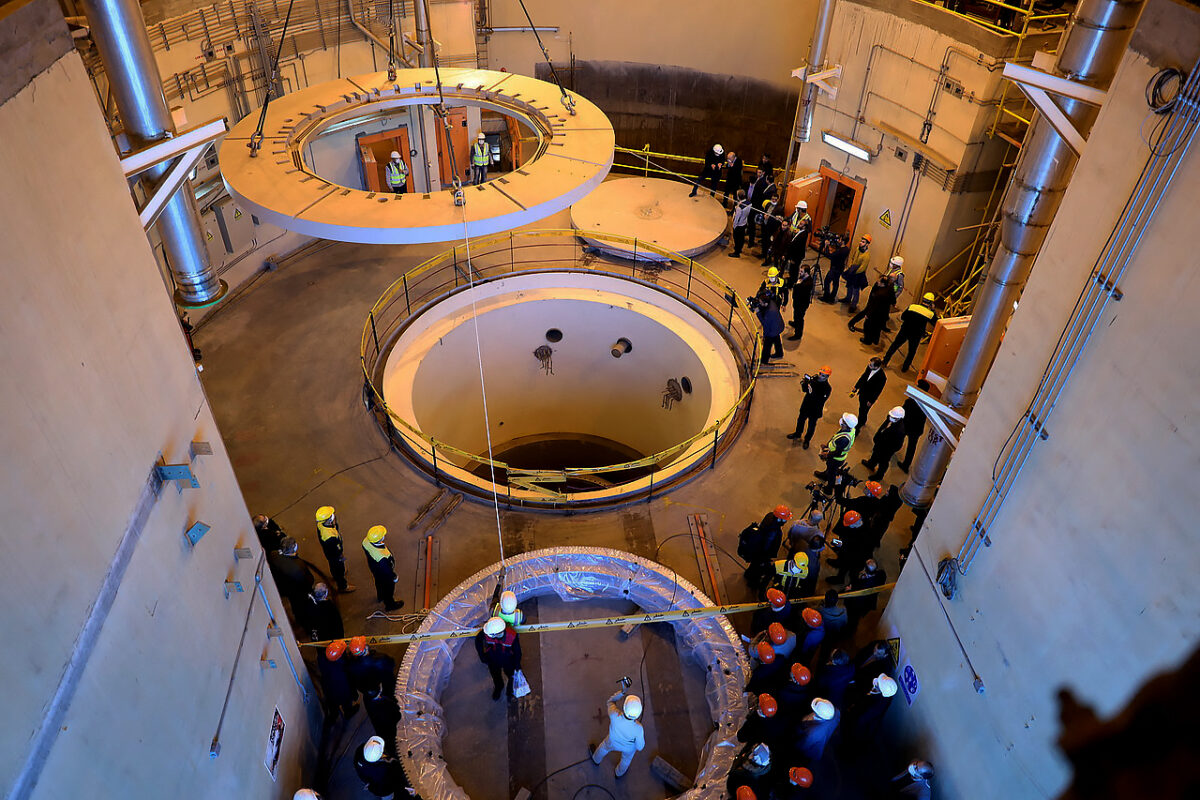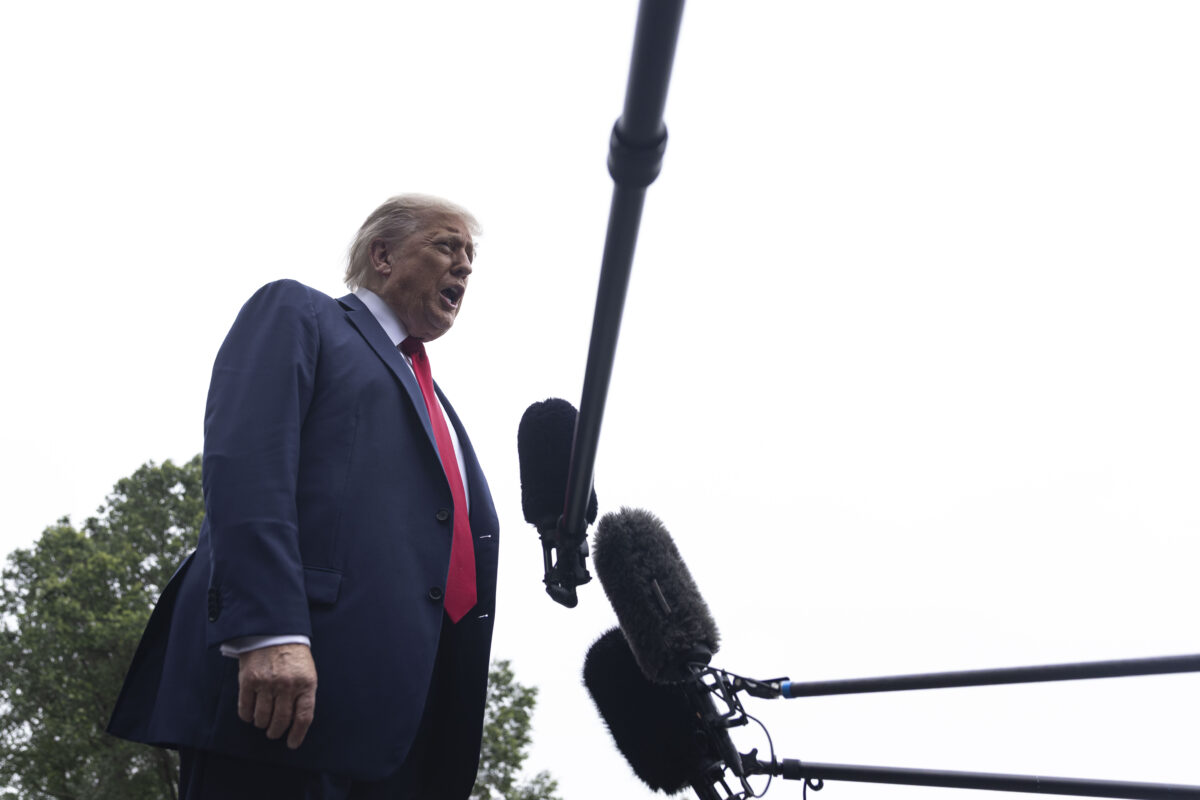-Analysis-
ROME — Many people are thinking it. German Chancellor Friedrich Merz had the honesty to say it. Israel “does the dirty work for all of us.”
The dirty work is the dismantling of the Iranian nuclear program. All of us is a long list of Europeans, Westerners, Arabs but also those cronies in arms (Russia) or business (China) who love Tehran — but prefer it without the atomic bomb.
For the latest news & views from every corner of the world, Worldcrunch Today is the only truly international newsletter. Sign up here.
The nuclear risk is the core of the military and political chain reaction surrounding the war between Israel and Iran. It exploded a week ago but has been simmering for at least 20 years. Two key questions persist: is the risk real, that is, does Iran really want the bomb? If so, how far away is it from getting there?
The Iranian theocracy says it doesn’t want it. That is, we must conclude by now, a shameless lie. Why would a country that bathes in oil and gas resources need the Bushehr nuclear power plant? Supplied by Russia in 1995, and opposed by the Americans, that project is still incomplete, with only one reactor in operation out of the five planned.
Nuclear energy for peaceful purposes is not what this is about. Uranium enriched to 3.67% is enough. For the bomb, 100% is needed. But then, at the beginning of the 2000s, the centrifuges at the Natanz and Fordow plants started spinning at warped speed to enrich it well above the fateful 3.67%. Add to this the recruitment of scientists and technicians, the maximum level of protection of the plants. For what purpose if not to make Iran a nuclear armed power?

A new nuclear race
If Iran acquires nuclear weapons in the Middle East, a whole new nuclear race begins. Saudi Arabia, Egypt, Turkey… in the minefield of Middle Eastern enmities, everyone has their good reasons. Israel already has its own, undeclared, which acts as a counter-insurance for their survival.
The NPT — Treaty on the Non-Proliferation of Nuclear Weapons — regime, that is already shaky (India, Pakistan, North Korea, in addition to Israel) would completely implode. Tehran must therefore be restrained in order to restrain the entire region and save the NPT .
The time to get there becomes a fundamental element.
In this logic, the objective of the international community, including the U.S., has been to keep Iran “far enough” from the enrichment threshold beyond which it can equip itself with the bomb. The time to get there becomes a fundamental element. And here, half-truths and half-lies have been the order of the day for years.
The background remains clear. Iran could easily give up a program that it does not need for its energy needs and development. It would have drawn significant economic benefits, with the removal of sanctions, and so forth. But, while declaring up to now that it does not want nuclear weapons, the regime has always insisted on the sovereign “right to enrichment.”
Beneath the surface
In practice, that has meant an OK to controls, and a hard No to giving up the program. Scratching beneath the surface, one discovers that many Iranians, including a large part of the diaspora that dreams of the regime’s downfall, believe that a large, millennia-old country like Iran — Persia — should be second to none. Even as a nuclear power.
From this perspective, for Israel the risk of Iran becoming a nuclear power is still too close, as long as it has a nuclear program. Hence Israel’s longstanding distrust of the 2015 nuclear pact, negotiated with Iran by the U.S., France, UK, Germany, Russia, China and the European Union. That was an agreement that was not entirely satisfactory — of limited duration,10 years — but which kept the Iranian centrifuges under strict control of the International Atomic Energy Agency (IAEA).
It did not last long. An initiative of the Obama era, Donald Trump walked away from it in 2018. Fast-forward to two months ago, when the Trump Administration opened new bilateral negotiations with Tehran.The claimed objective was a new agreement that, under perhaps more stringent conditions, aimed at the same result: putting a block on the Iranian program.

Netanyahu’s end run on Trump
Netanyahu maintains the exact same distrust he had towards the 2015 deal. This time a combination of favorable circumstances and careful preparations allowed him to blow up Trump’s diplomacy and intervene militarily. Unable to hold him back, the U.S. President, with a pirouette, now essentially endorses him.
For Trump, who is still struggling with a Hamlet-like “to intervene or not to intervene,” how close Iran is to nuclear weapons — irrelevant to Netanyahu — remains ostensibly central. To prepare the ground for intervention, he rushed this past week to say that Iran was now on the nuclear threshold, contradicting his own Director of National Intelligence, Tulsi Gabbard.
From Israel’s perspective, the “dirty work” was nonetheless urgent and necessary.
The director of the IAEA, Rafael Grossi, who had previously sounded the alarm bell by denouncing a strong acceleration in enrichment, although specified that imminence is not measured in weeks to reach 100% enrichment but in months, perhaps more, necessary to build a nuclear weapon.
So, the full truth of “how close” is ultimately subjective.
From Israel’s perspective, the “dirty work” was nonetheless urgent and necessary. Tehran’s nuclear program is the only truth that matters. Trump, meanwhile, has now placed himself in the middle, with a new two-week window to decide if the U.S. intervenes directly.
As always, his decision will simply be to latch onto the most convenient half-truth available.